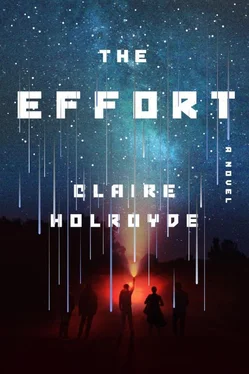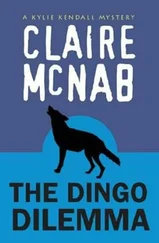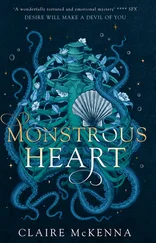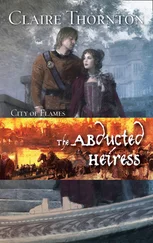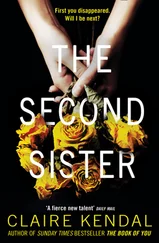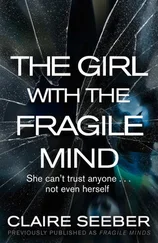A senator made his way to the podium at the front of the chamber. Father St. John sat up straight and frowned.
“I know I must love all God’s children,” he said, “but this one’s a real bastard.”
The federal senator was a rich cattle baron turned politician, a powerful member of the rural bloc. At the podium, he wore an expensive suit with a Brazilian flag pin on his lapel. Before the man became a senator, he was local governor of the frontier state of Rondônia, where he wore simple clothes and a brimmed straw hat. He wanted to appear as a man of the people—more specifically, rich cattle ranchers like himself.
“Meus amigos,” he said, with arms outstretched, and continued to address his fellow senators in Portuguese.
When his eyes scanned the gallery and caught sight of Gustavo, he smirked. Gustavo wasn’t used to being seen, especially not by men like that. He felt his pulse quicken as they regarded each other with calculated hate.
“I see more white faces judging from above,” the senator said, growling the syllables.
He pointed an accusatory finger up at Father St. John, a pale Canadian Jesuit working with the social justice wing of the Church.
“Those hypocrites from the north tell us not to develop our lands because we are hurting the Indians and the animals. Who the hell are they to say this during a recession?”
He laughed and threw up his hands.
“I’ll tell you who… they are the ones who sold their forests, skinned all their animals, and slaughtered their natives. That’s who. The North American colonies were built on blood-drenched lands.”
Father St. John looked at his feet but didn’t budge from his seat. He had told Gustavo that the massacres of his ancestors were more reason to fight against massacres of the present—not less.
“The rest of the West has grown rich from their lands,” the senator argued. “Now it’s our turn.”
The chamber resounded with applause from the floor, making him even more bold.
“If the Amazon is the lungs of the world,” the senator shouted, “then the world must pay us to breathe!”
One by one, senators stood to cheer and bruise their palms with clapping.
“We’ve lost,” Father St. John whispered.
He wasn’t wrong—the code amendments passed with a majority in both legislative houses—but before the ballots were cast, a congressman stepped up to the lectern microphone unexpectedly. The former environment minister looked out at the gallery in a shocked daze.
“Something terrible has happened,” he said into the microphone.
Only a respectful stranger, like this man, would refer to them as José Cláudio Ribeiro da Silva and Maria do Espírito Santo. To everyone who knew and loved them, they were Zé and Maria. That was how the couple had introduced themselves to church members in the state of Pará after they started receiving death threats in 2008. The land that they rented from the government for sustainable harvesting was under attack from illegal loggers and charcoal burners. Members of the church hired a lawyer to file official complaints to government agencies on their behalf, but police protection was refused.
Zé wouldn’t run from his home, and he wouldn’t back down. He talked to anyone who would listen about the value of the rainforest and what was being done to it. He took pictures of all the trucks carrying off felled logs from burning forest and emailed them to police and reporters alike. Just last year, he was invited to speak at a TEDx conference and had his speech posted to YouTube. But as media attention spread across Brazil and beyond to the international community, Zé and Maria became bigger targets.
And so it was Zé and Maria who were sprayed with fifteen bullets. It was Zé and Maria who would be laid out in matching coffins with white polyester silk framing their faces to hide the ragged holes where assassins had cut off their ears as proof for payment.
“I’d like to call for an investigation into the double homicide—” the senator started to say, but a roar of booing from the floor drowned out the rest of his words.
Father St. John’s jaw hung open as the rest of the upper gallery audience looked at one another in shock. Gustavo saw a familiar face, the Greenpeace director sitting six seats to the right, shake his head in sadness but not surprise. Amid all the commotion, the Senate called a recess. Several people in the upper gallery filed out and took to the stairs. One journalist making his way to the aisle whispered congratulations for Gustavo’s Nobel award.
Read one of your poems at my funeral , Zé had said to Gustavo. The one about my beautiful Majesty.
Father St. John swallowed something of a moan and said humanity should thank God for all the dirt of the earth. Without that dirt, the faces of the dead would be unbearable.
“There will be more,” he warned. “And the Belo Monte dam proposal will get approved next week.”
And as collateral damage, a vast amount of rainforest would be submerged underwater, including the traditional homeland of the Kayapo people. Gustavo leaned over the gallery’s metal railing, staring daggers at the eighty-one senators directly below.
“Fifteen bullets,” he said. “Fifteen. All the fingers on three hands.”
Of course the number of bullets wasn’t for the newly dead but for the still living. They were for him, Father St. John, and all the others who resisted exploitation by the rich and powerful.
“Our enemies hire assassins to do their devil’s work,” Father St. John said.
Gustavo continued to study the men below, stripping himself down to his single, dogged mission of destroying the destroyers.
“And they will never see the inside of a jail. But you would, Gustavo.”
Gustavo finally turned to look at the priest. His friend must have seen past his sickened soul, straight to the murderous intent lodged at its core like a pit.
A plump white man approached Gustavo in the aisle. All of him looked white—his hair, his beard, his linen shirt, and the undersides of his arms and stout legs. Only the red burn on his face and the tops of his arms had color.
“I’m with the Intergovernmental Panel on Climate Change,” the man said, extending his hand. “And I’ve read all your poetry collections.”
Gustavo ignored the other man’s open palm.
“Today was… one tragedy after another,” the man conceded, putting his hand back at his side. “But isn’t that why we need poets? Tragedy is your trade.”
Light from the domed silver ceiling flashed in his wireframe glasses.
“And the Amazon isn’t the only tragedy, the only battleground of climate change,” he said. “There is another for you to write about…”
Only the environments that were most hostile to human civilization, the Amazon and the Arctic, had been spared from its massive destruction—until now. The white man offered to take Gustavo on an ocean voyage to show him melting icebergs, drowned polar bears, beaches littered with trash and starved murres, abandoned Inuit villages, and rising sea levels. He handed over a business card, which Father St. John accepted as Gustavo remained motionless.
“Dr. Charles Brodie,” the priest read aloud. “University of California, Berkeley. The Turner Foundation Endowed Chair Professor of—”
“Just call me Charlie,” the man offered.
After he left, Father St. John pocketed his card.
“That kind of voyage would grant you an American visa with no questions asked,” he whispered. “An escape from all this—”
They were interrupted by a young man walking toward them from the gallery. He stopped in the aisle and bowed in deference as he introduced himself in Portuguese as the Brazilian bureau chief for the New York Times .
Читать дальше
